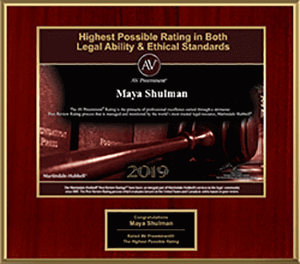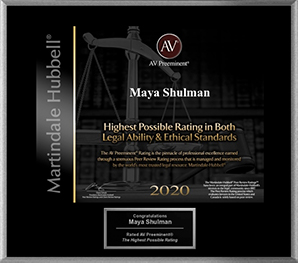
Among the many aspects that require a lot of thought in a divorce, asset division is one of the most critical one. More so when the people involved are affluent and high net worth individuals.
In California, the laws pertaining to division of property are unique unlike in states where an equitable distribution based on many factors such as length of marriage or income are taken into consideration while dividing the assets. Marital property is divided on a 50/50 basis based on the theory of “community property” in California.
Types of Property Recognized By California Courts
Courts in the Golden State recognize three different types of property that form the basis for division in a divorce:
1. Community property
2. Quasi-community property
3. Separate property
Community property: Assets purchased or owned after marriage is termed community property. Such assets can include the house, vacation homes, jewelry, vehicles, yachts and pensions.
Quasi-community property: If either of the couples owned or purchased any asset in a different state before moving to California, it is considered quasi community property.
Separate property: This category includes assets that were purchased or owned before getting married. Gifts received during the marriage or bequest are also considered separate property. Any asset acquired after the separation of the couple is also deemed to be separate property.
Division of Different Types of Property in California
As for community property, the law in California favors a 50/50 split. All assets acquired while the couple is married, is to be divided equally unless there is a written agreement that specifies otherwise.
The net community asset is derived by subtracting any joint obligations or debts from the total market value of assets and each spouse receives exactly half of this amount in the absence of any other contrary agreement.
When it comes to physical assets that cannot obviously be split into half (such as house or a valuable painting), the law provides for a fair division of the total net worth of all assets. What this means is that while one retains the residence, the vehicle and jewels, the other gets the real estate investments, family owned business that are of equal worth.
Any employee benefit or retirement contributions that were started after entering into the marriage is also treated as community property and is to be divided equally. If the contributions or investments in retirement plan were made before getting married, that particular amount will be deducted before arriving at the amount to be distributed equally.
Pensions are divided in two ways. One way is by dividing the number of years the couple spent in marriage while contributing to the pension plan by the total years of contribution by the eligible employee. Termed “reservation of jurisdiction” this is the most common way of dividing pensions. The other method involves an assessment of the total market worth of the pensions that is translated into actual cash settlement for the spouse who has contributed to the pensions, while the other gets to retain any property that is worth the amount.
Quasi community property that is acquired after marriage is treated as community property under California law and is divided in the same way. If the property was acquired in another state before getting married, it is considered separate property.
Separate property is the wealth or assets that were possessed or acquired prior to getting married. Gifts or inheritances received during marriage by one person and any property or asset bought with a cash gift received is also considered separate property. Such property remains with the individual owner.
All debts that are incurred during the time that the couple is married are also to be distributed equally among the partners as per California law.
Many times property division after divorce is not straightforward, and can be confusing especially when extensive assets are involved. Consult a legal professional specializing in such matters for better clarity.
SFLG
Shulman Family Law Group







